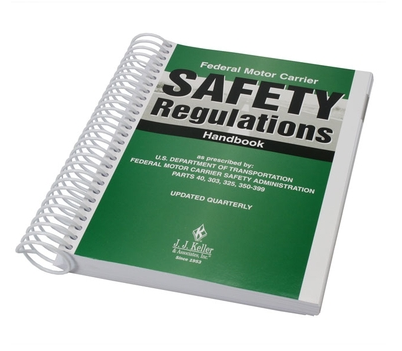
Wheel Chock Regulations: What's Required & What's Just Common Sense

Wheel chock regulations are murky. There are two different federal agencies, governing two different groups with two different requirements.
Confusing? This post aims to make the requirements more clear.
Federal Requirements
The Occupational Safety and Health Administration (OSHA) is a federal agency tasked with keeping US workers safe while on the job. That being said, The Federal Motor Carrier Safety Administration (FMCSA), a subset of the US Department of Transportation (DOT), overrides OSHA regulations when it comes to specific rules related to commercial motor vehicles and their drivers.
Each agency has different rules when it comes to the required use of wheel chocks.

OSHA Regulations
OSHA is very clear when it comes to wheel chocks– use them. However, there is a hang-up. OSHA does not have jurisdiction when it comes to regulating commercial motor vehicles (like semis and buses) and their drivers. That’s up to the FMCSA.
However, some exceptions apply. OSHA has complete jurisdiction over all intrastate motor vehicles, those used in the workplace and on non-public roads.
Examples include gravel and sand haulers, logging and agriculture haulers along with concrete mixers. OSHA also says it will enforce its wheel chock requirement on all trailers and trucks that are not classified as commercial motor vehicles.
Put simply, if you are not a commercial motor vehicle, you need to chock.
FMCSA Regulations
The FMCSA has different rules when it comes to requiring wheel chocks. The law states that air-braked power units (made on or before March of 1975) are enough to keep a commercial motor vehicles from moving during the loading and unloading process.
However, the FMCSA does require blocks or chocks for all agricultural commodity trailers, pulpwood trailers and heavy haulers. Put simply, if you are a commercial motor vehicle you likely do not need to chock, but double check to make sure your vehicle isn't an exception.
Safety Concerns
A common safety concern involves the movement of trucks or trailers at a dock. Specifically when a forklift is loading and unloading the trailer. It is somewhat common for trailers to creep and become disconnected from the dock lever.
When this happens, it endangers the safety of the forklift operator and those working in or around the trailer at the time. Safety officials recommend drivers always set the brakes, chock the wheels and or activate the locking mechanism included on the dock.
Carriers, receivers and distributors can and do set their own policies that go up and above in regards to safety. It's important to be aware of those policies. If a company requires wheel chocks, then the policy will be enforced.
Federal safety standards are considered the minimum or threshold when it comes to safety. Wheel chocks are not required for independent CMV drivers, but that doesn't mean it isn't a good idea to have a backup plan should your brakes malfunction.
Accidents do happen. Wheel chocks simply ensure that you look out for the safety of yourself and those around you, whether you abide to wheel chock regulations or not.



